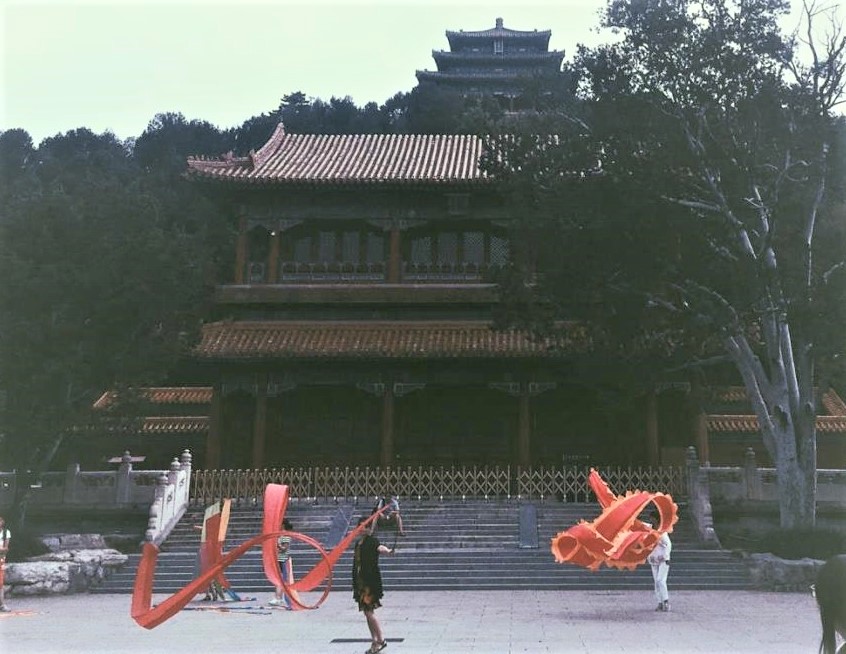Fourth Year Honours Seminars
All BGInS students in an Honours program are required to successfully complete one section of GINS 4090 in order to meet graduation requirements. Fourth year students will be permitted to select one section of GINS 4090 for their timetable.
Fall 2024 – GINS 4090
- Section B: After Empire?: 20th Century Imperialism and Resistance - Candace Sobers
-
This course re-considers the twentieth century from a global and international perspective, questioning the western-centred triumphalist narratives of the so-called “end of empires.” This course provides a detailed investigation of processes and consequences of empire and resistance in the 20th century, including the roots of contemporary conflicts, imperial repertoires, decolonization as politics and metaphor, anticolonial nationalisms, revolution and counterrevolution, and what it means to be “after empire”? Using historical sources and methods, as well as critical scholarships, we interrogate key elements of the contemporary world, including the borders and partitions, the persistence of the state, and postimperial imaginaries, and neocolonial legacies. Students in this course will demonstrate an understanding of the field, will research and interpret primary sources, will engage in critical historical discussions, and will complete a high-quality research project. Note: a familiarity with 20th century international history is strongly recommended.
- Section C: Fashion’s Global Impact: Politics, Culture, and Sustainability - Hassan Bashir
-
With its far-reaching global presence, the fashion industry serves as a compelling nexus where politics, culture, and everyday life intersect uniquely and continually. Throughout history, fashion has been intricately intertwined with deeply political processes, encompassing urbanization, industrialization, colonialism, slavery, racialization, and the shaping of gender, and class hierarchies. In the contemporary world, fashion now connects to global ecological concerns, the intricate circuits of materials, finance, and imagery, and the complex patterns of production, labor, and consumption on a global scale. This course will investigate how seemingly ordinary fashion practices are potent sites for engaging with questions about global social justice, sustainable development, and decolonization. How do we decode the politics embedded in our clothing choices? How do we comprehend the politics surrounding the individuals who produce these garments and the conditions under which they work? How can we unravel the social, political, and ecological messages conveyed through fashion imagery in print, electronic, and social media, and how do these notions materialize through the processes of production and consumption? Ultimately, why is fashion essential in our comprehension of global politics?
- Section E: Global Indigenous Thinkers - Paul McKenzie-Jones
-
This course is concerned with providing an understanding of contemporary Indigenous worldviews across the world, informed by Indigenous thinkers, and framed by concerns, knowledges, and theories from Indigenous scholars, knowledge keepers, and intellectuals, past and present. How have/are Indigenous activists, artists, and scholars past and present pushed back against globalization; fought for climate change action; held genocide to account; resisted assimilation policies; asserted territorial sovereignty at/within/between international borders and settler states; advocated for self-determination; and denied resource extraction on their lands? Using essays, films, art, and other forms of creative and intellectual expression from selected Indigenous thinkers, students will learn how global Indigenous scholars, artists, and activists from North America, Asia, Europe, Micronesia and Oceana collaboratively connect and collaborate to protect their rights and the rights of the planet in the face of global corporate extractive expansionism.
Winter 2025 – GINS 4090
- Section D: Financing for Development - Livia Bizikova
-
The course will provide an overview of sources of financial flow to promote development. The course will look at the different sources of financing including national sources, donor support as well as private sector engagement. The course will cover changes of financing over time and appearance of new modes of financing covering new opportunities of climate finance, green bonds and those focusing on SDGs. We will review key databases that can be used to improve transparency and gather information about allocation of finances on different issues and places. Finally, we will pick some areas of development support such as on food security, gender, climate change adaptation, agriculture and food security, or renewable energy/aspects of green economy to illustrate financial flows and changes over time. The selection of specific issues will be based on discussions with students.
- Section A: Global Fascism - James Casteel
-
What is fascism? How did it become a global political movement? What legacy does fascism have for our world today? This course will explore these and other questions through an examination of the history of the fascism and its legacies from a global perspective. Emerging after World War I, fascism was one of the three competing political ideologies (communism and liberal democracy being the other two) that vied for global influence in the twentieth century. Yet, because fascist regimes articulated extreme forms of nationalism, fascism is often analyzed through national lenses that obscure the transnational connections among and global ambitions of fascist movements and regimes. After a brief discussion of definitions of fascism and of the reasons for considering fascism through a global lens, we will explore the emergence of fascist parties and regimes globally with a particular focus on the Axis Powers of Fascist Italy, Nazi Germany, and Imperial Japan. We will consider how fascists ruled in practice, the leadership cult, the role of nationalism and dynamics of inclusion and exclusion in fascist efforts to remake the body politic (gender, sexuality, race, class), fascist empire building, the centrality of violence to fascist rule, and resistance. We will pay particular attention to the transnational and global dimensions of fascist regimes including transnational networks among fascists and their admirers, fascist empire-building as a challenge to the existing international order, as well as the experience of refugees and exiles from fascism. We will also examine post-fascist societies, processes of remembering (and forgetting) fascism, and the usefulness of fascism as a concept for understanding the rise and spread of authoritarian and illiberal regimes in the twenty-first century.

International Placement – China
Share: Twitter, Facebook
Short URL:
https://carleton.ca/bgins/?p=4413
